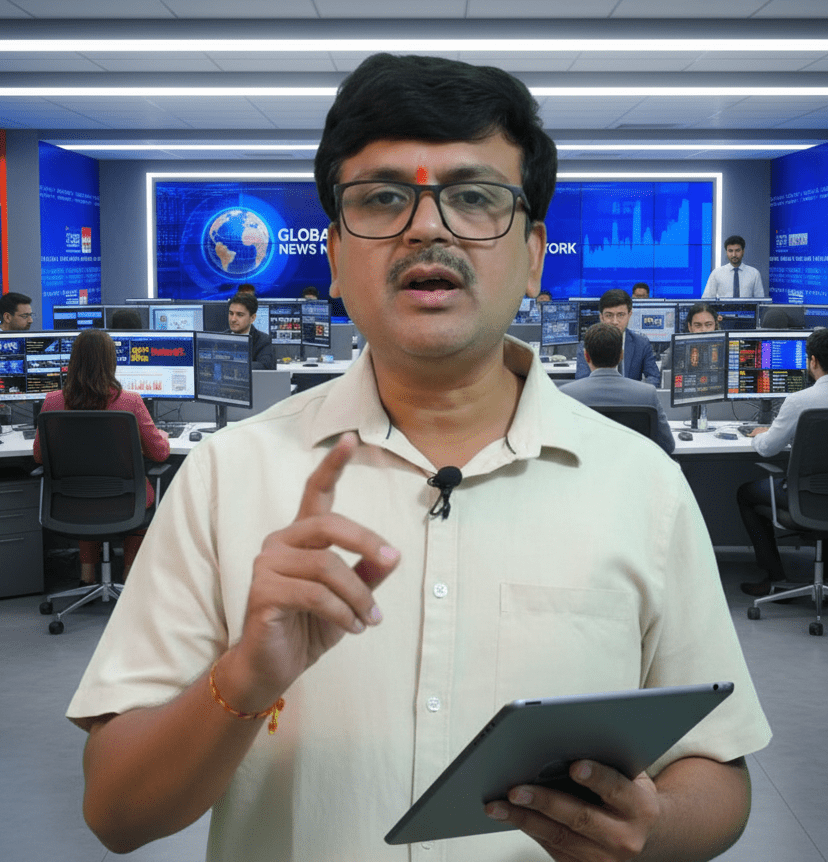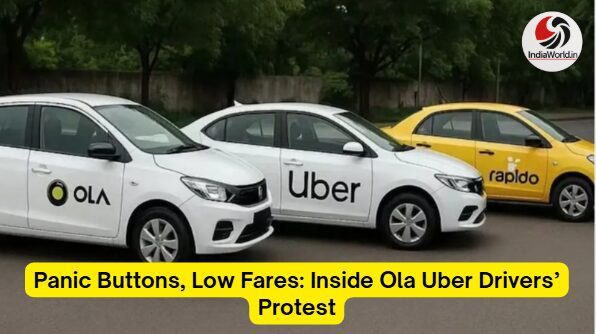H-1B Visa Holders Power U.S. Innovation—But Trump’s Decisions Risk Global Partnerships
The H-1B visa program has long been a gateway for skilled professionals from India, China, and other countries to contribute to the U.S. tech industry. From Sundar Pichai to Elon Musk, global talent has driven innovation and economic growth. But recent decisions by President Trump—including a proposed $100,000 H-1B fee hike—have sparked concern among tech leaders and international communities. As a journalist, I believe Trump’s behavior is damaging decades of India-U.S. cooperation, and it’s time to re-evaluate how we treat the very people building America’s future.
The Backbone of U.S. Tech: H-1B Visa Holders
The H-1B visa, introduced in 1990, was designed to bring highly skilled workers to the United States—especially in science, technology, engineering, and mathematics (STEM). Over the years, it has become a cornerstone of Silicon Valley’s success.
Key Contributions:

Elon Musk
Elon Musk entered the U.S. initially on a J-1 exchange visa and later transitioned to an H-1B visa to pursue academic and entrepreneurial ventures. He went on to found SpaceX, Tesla, Neuralink, and X Corp, revolutionizing industries from aerospace to electric vehicles. Musk credits the H-1B program for enabling global talent to build transformative technologies and drive U.S. innovation.

Sundar Pichai
Sundar Pichai came to the U.S. as an international student and later obtained an H-1B visa, which allowed him to join Google in product management. He rose through the ranks to become CEO of Alphabet, leading advancements in AI, cloud computing, and consumer tech. His journey reflects how skilled immigrants can shape the future of global technology.

Satya Nadella
Satya Nadella moved to the U.S. in the early 1990s and secured an H-1B visa to work at Microsoft. He became CEO in 2014 and led the company’s transformation through cloud services, AI, and enterprise solutions. Nadella is a vocal advocate for skilled immigration, emphasizing its role in driving innovation and economic growth.

Eric Yuan
Eric Yuan, originally from China, faced multiple visa rejections before finally obtaining an H-1B visa. He founded Zoom, which became a global lifeline during the COVID-19 pandemic, enabling remote work, education, and communication. Yuan’s story is a powerful example of how perseverance and opportunity can lead to worldwide impact.

Jyoti Bansal
Jyoti Bansal arrived in the U.S. on an H-1B visa in 2000. He founded AppDynamics, a software performance monitoring company that was acquired by Cisco for $3.7 billion. His success highlights the entrepreneurial potential of H-1B holders and their ability to create jobs, drive innovation, and strengthen the tech ecosystem.

Aravind Srinivas
Aravind Srivas is a standout example of how global talent shapes the future of U.S. tech. Originally arriving in the United States as a student, he later secured an H-1B visa to work in artificial intelligence research. He went on to co-found Perplexity AI, a cutting-edge AI company now valued at $9 billion. Srinivas’s journey—from academia to launching a major tech firm—highlights the powerful link between skilled immigration and leadership in next-generation technology
These stories aren’t just inspiring—they’re proof that global talent is essential to U.S. innovation.
Trump’s H-1B Fee Hike: A Regressive Move?
In 2025, President Trump proposed a $100,000 fee for new H-1B visa applications, sending shockwaves through the tech industry. Experts called the move “regressive,” warning it could:
- Limit access to skilled talent
- Slow down innovation
- Push companies to relocate operations abroad
As a journalist observing U.S.-India relations for over two decades, I find this deeply troubling. The diplomatic and economic ties between India and the U.S. have weakened significantly due to Trump’s unpredictable behavior. His decisions often lack consultation and foresight, affecting millions of lives and decades of progress.
My Opinion: Global Talent Deserves Respect
Let’s be honest—America’s growth rate owes a lot to latent talent from countries like India and China. These professionals:
- Build the infrastructure of tech giants
- Lead AI and cloud innovation
- Create jobs and wealth within the U.S.
Yet, Trump’s policies seem to disregard their contributions. Why take such hasty decisions that alienate the very people driving your economy?
As someone who’s covered India-U.S. relations for 20 years, I’ve seen the highs of collaboration and the lows of political ego. Right now, we’re at a low point—and it’s hurting both nations.
Impact on U.S. Tech Ecosystem
Major companies like Google, Amazon, Microsoft, and Apple rely heavily on H-1B talent. Indian-origin firms like Infosys, TCS, and Wipro also contribute significantly to the U.S. economy.
Economic Contributions:
- Trillions in market value created
- Thousands of startups launched
- Millions of jobs supported
Restricting H-1B visas doesn’t just hurt immigrants—it hurts America’s competitiveness.
Why Global Talent Matters More Than Ever
In an era of AI, quantum computing, and biotech, the need for skilled professionals is skyrocketing. The U.S. simply cannot meet this demand without international talent.
Fields Dominated by H-1B Holders:
- Artificial Intelligence
- Cloud Computing
- Cybersecurity
- Data Science
- Software Engineering
Restricting visas now is like cutting off oxygen during a marathon.
What Should Policymakers Do?
Instead of penalizing skilled immigrants, the U.S. should:
- Streamline the H-1B process
- Reduce bureaucratic hurdles
- Invest in digital infrastructure for visa processing
- Promote bilateral tech partnerships with countries like India
This isn’t just about visas—it’s about vision.
Voices from the Industry
Tech leaders have spoken out against Trump’s H-1B policies:
“We need the best minds, regardless of where they come from.” — Sundar Pichai
“Innovation knows no borders.” — Satya Nadella
These aren’t just quotes—they’re calls to action.
Final Thoughts: A Journalist’s Perspective
As someone who’s covered global affairs for two decades, I believe the current U.S. administration is making decisions that could have long-term consequences. Trump’s behavior—often impulsive and divisive—is eroding trust between nations.
India and the U.S. once shared a strong tech and diplomatic bond. Today, that relationship is strained. And unless we recognize the value of global talent, we risk falling behind in a world that’s moving faster than ever.








